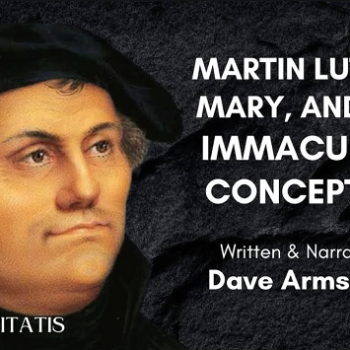So, we have to talk about this thing that everybody's talking about this week—your coming out publicly in support of gay marriage.
Ha . . . whoa, wait, wait . . .
That's what everybody's saying . . .
I was asked a question that I've been asked countless times and I answered it as I've always answered it, so if that's some grand announcement, that's fascinating.
Well, for whatever reason, you saying "yes, I support gay marriage" has been heard this week like never before. How did you arrive at your position on marriage equality?
It's not good for us to be alone. I have my friends who are gay. It's ultimately for me not an "issue" or an "idea" or a "position," it's just, they're my friends. It's honoring them, and who they are, and their desire for love and companionship and a partner to go through life with. So it's central to what it means to be human. So it is about equal rights, it is about justice, but it's also about what it means to be human.
We need to make this leap. God is ahead of us here, pulling us forward, and we need to make this leap because as a pastor, the amount of pain that I have seen caused by resistance to how people actually are—it's unbelievable. On an issue that Jesus never mentioned. How is it that followers of Jesus are known for their opposition to something Jesus never talked about? It is a giant case of missing the point. I actually think that in a short period of time here, everybody—like was it Senator Rob Portman this week?—when you have people like him telling their story, that's the beginning of the end. As a culture, it's a good thing, a necessary thing.
Some people criticized your recent statements at Grace Cathedral, where you basically said "listen, the ship has sailed, we've moved on," saying that the church shouldn't change positions because of where the Culture is, but I would say you would have a very different opinion about that.
You know, it's interesting, there's a body of literature that are novels written to support slavery, and the main characters quote Bible verses, and these novels were very popular in churches several hundred years ago. You cannot read these novels without being ruthlessly honest about how sometimes the church is behind, and sometimes the church is ahead, and sometimes the church is right there in the middle. But when the church is behind, one of the beautiful things is its capacity for self-critique.
If you were preaching on Easter Sunday, what would your central message be, given where you are right now, given where the world is right now?
I would talk about how, to have a Sunday, you need a Friday. And I would talk about how resurrection comes out of death, and how for many of us, the most significant moments of growth and evolution and change in our lives that really took us to new places happened because we went through great suffering. There is some mystery built into death and rebirth.
So wherever you are at, Sunday does come. And that we find God on Friday and we find God on Sunday, and that's the invitation. The invitation is to find God in all of it. We want Sunday and skip over Friday, but Friday is where the interesting stuff happens that makes Sunday possible.
So I would talk to everybody who has cancer and everybody who's lost a job and everybody who has kids who have wandered away and everybody whose marriages are falling apart and I would talk about what resurrection looks like and feels like. And I would invite them to trust and believe and hope, because I think it's real.





